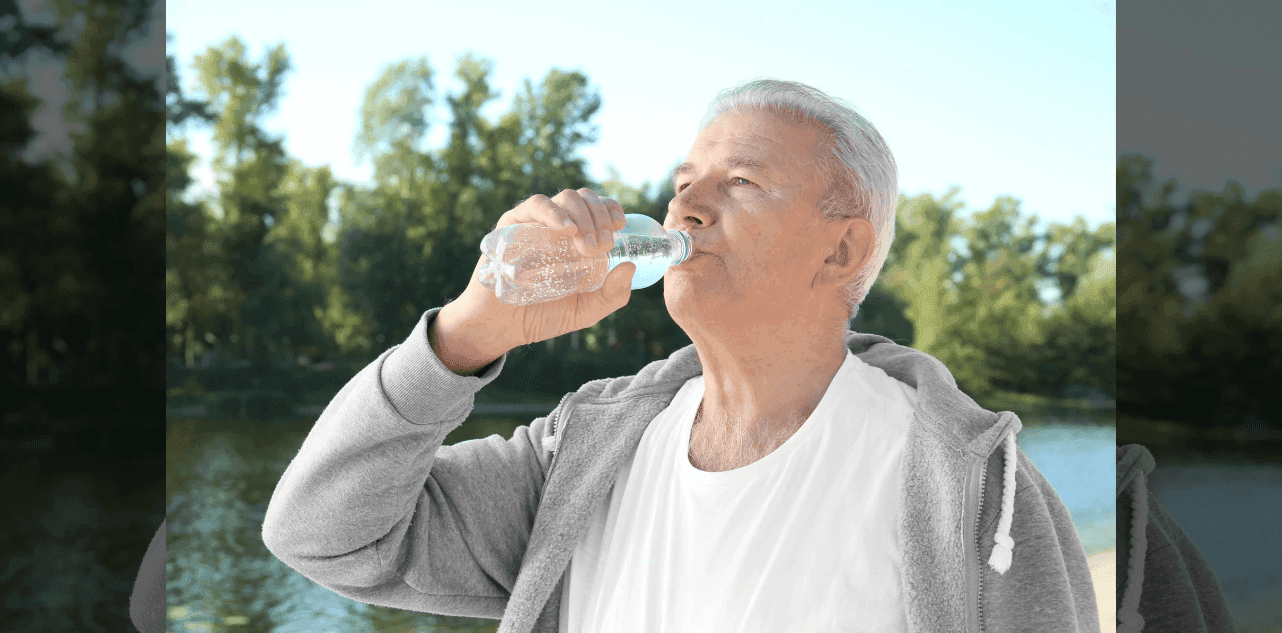Monday 16 February 2026
Mental Confusion in Elderly People and Hydration: A Health Advisory
Share

Staying hydrated is important for mental function as the body and brain are mainly comprised of water.As mental processestend to slow down with age, it becomes crucial for seniors to stay hydrated. Cognitive function is enhanced when the brain cells receive the appropriate amount of hydration.
People of any age need to stay hydrated. It’s especially important for seniors, as they often lose their appetite for water with aging. Here are a few reasons why seniors need to stay hydrated:
As adults age, the sensation of thirst diminishes, which means seniors are less likely to realize when they’re thirsty. Seniors face an increased risk of dehydration and have to stay extra vigilant about their water intake.
Seniors also metabolize water differently than younger individuals. While younger adults can regulate water balance, seniors often compromise on their water turnover. For this reason, seniors need to stay vigilant about hydration.
Staying hydrated is important for mental function as the body and brain are mainly comprised of water. As mental processes tend to slow down with age, it becomes crucial for seniors to stay hydrated. Cognitive function is enhanced when the brain cells receive the appropriate amount of hydration.
Some seniors face urinary incontinence. While it might lead them to drink less water, this can actually exacerbate the problem. Seniors with incontinence should maintain healthy drinking habits, as a reduction in fluid intake can cause even more problems such as urinary tract infections.
Hydration is the key to digestive health. Seniors with constipation or digestive discomfort should always make sure to drink their daily dose of water, as dehydration is often linked to constipation. Regular hydration and fiber consumption can help seniors afflicted with constipation.
As seniors age, kidney function often diminishes, which leads to a decrease in the body’s ability to concentrate urine. To boost renal ability, seniors should drink water throughout the day, even when they don’t feel thirsty.
In this regard, a professor was teaching fourth-year medical students about medicine in a medical college. He asked students: "What are the causes of mental confusion in elderly people?" Some students answered: "Due to head injuries or tumors." The professor responded: "No!"
Others suggested: "Early symptoms of Alzheimer's (memory loss)." Again, he replied: "No!" With every rejection, the students became more curious.
Finally, when the professor revealed the most common reason, the students were astonished.
The reason the professor putforth was: “Dehydration”.
This may sound surprising, but it is not a joke. People over 60 tend to stop feeling thirsty.
As a result, they reduce their fluid intake. When no one is around to remind them to drink fluids, they quickly become dehydrated.
Now, Dehydration is serious and affects the entire body. If dehydration occurs, it can lead to:
The habit of forgetting to drink fluids starts at age 60. By this age, the body's water content is already reduced by over 50%. In general, people over 60 have lower water reserves. This is a natural part of aging.
However, the real issue is that: Even when they are dehydrated, they do not feel thirsty, because their brain’s internal balance system no longer functions effectively.
As such, People over 60 years old are easily prone to dehydration, not just because their body has lower water reserves; but, because they do not feel thirsty when their body lacks water.
Even if an elderly person appears healthy, dehydration can cause serious chemical reactions that damage their entire body.
Two important warnings:
1. Develop the habit of taking fluids regularly. Fluids can include Water, fruit juices, tea, coconut water, soups Water-rich fruits like watermelon, muskmelon, peaches, pineapples, oranges, and tangerines. The key is to drink small amounts of fluids every two hours.
2. A warning for family members: Continuously offer fluids to elderly people over 60.
At the same time, observe their health carefully. If you notice that an elderly person is refusing fluids, and they show irritability, breathlessness, or lack of focus from one day to the next: These are definite signs of prolonged dehydration.
Newsletter
Stay up to date with all the latest News that affects you in politics, finance and more.